

.jpg)
“Pray that what is really in the hearts of the individual candidates is revealed”, says Oliver Stozek, leader of the Austrian Evangelical Alliance.
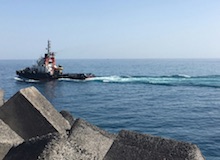
In the first five months of 2024, 18,000 migrants arrived on the Canary Islands' coasts. Leaders of churches say solidarity is needed between regions in Spain.
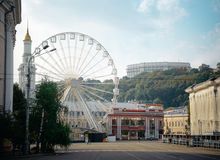
At least 630 religious places have been damaged, says a report of Mission Eurasia. Russian soldiers raid churches, ban religious activities and persecute faith leaders.
.jpg)
As the coalition government pushes for liberalisation of abortion, pro-life organisations say their message is increasingly being heard.
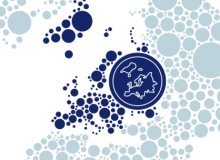
Analysts note “a shift in morality that is affecting the way many Europeans interpret the ‘good news’ of the Gospel”. The State of the Great Commission report is the reference document for the 5,000 evangelical leaders at the Lausanne 4 Congress in Seoul.
.jpg)
The decline in membership of the two historic Christian confessions will have consequences: “Every fifth worship place will no longer be used for its original purpose”.
.jpg)
A macro-study of the government to combat trafficking shows that over 114,000 women are in prostitution. The Minister for Equality hopes to pass an abolitionist law similar to the French one. Evangelical organisations support it.
Registration is now open for the ELF conference in Wisla (Poland), 17-22 May. Peter J. Williams of Tyndale House in the UK will be the Bible teacher.
.jpg)
We asked 3 migration experts what they would say to young people travelling to North Africa in the hope of crossing the sea and reaching European shores.
.jpg)
About 250 people attended the IFED conference in Padova. Tim Challies addressed the interaction of the Gospel and new communication technologies. ‘Evangelical Focus’ was one of the media projects presented.
.jpg)
In the last 15 days of August alone, 3,220 arrived in the Canary Islands from Africa risking their lives in small boats. Noemi Mena, an expert on migration, believes there are no solutions without solidarity between regions and long-term planning.
.jpg)
Walking to Parliament Square in London, the March For Life UK defended that “abortion is not healthcare”.
.jpg)
In the first half of 2024, the arrivals of migrants to Spain tripled those of the entire year before. The director of a large evangelical NGO calls for a new Immigration Law and encourages citizens to “reflect critically” on what is said in the media.
.jpg)
The first-ever victory of the far-right AfD comes in a context of growing divisions between how people in the east and the west of the country perceive society.
Cropped(1).jpg)
At the national parliament’s square, 1,000 listened to testimonies of persecuted Christians, displayed flags of countries where there is no religious freedom, and prayed in front of a symbolic mass grave.
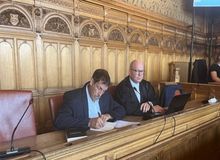
After 4 years, the proceedings against pastor Olaf Latzel for hate speech are dropped. He paid a fine of 5000 euros and publicly apologised.
.jpg)
Christians need to “anchor their action in in-depth biblical reflection”, says Marjorie Legendre, one of the twelve authors of a new book that connects current issues and evangelical faith.
.jpg)
The new law allows judges to ban the Ukrainian Orthodox Church, which has links with the Moscow Patriarchate and is officially headed by the Patriarch Kirill.
.jpg)
About 70 participants from all regions gather to “discuss again what is at the heart of evangelical belief and theology and what is more secondary”, says FEET’s chair, Gert Kwakkel.
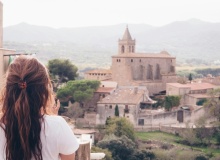
In five years, the percentage of Catholics has fallen from 67% to 54%, while atheists, agnostics and indifferent people have risen from 27% to 41%. Believers in other religions are at over 3%.

Six new schools will open this autumn, reports the German association of Protestant schools. Christian education is also growing in other European countries.
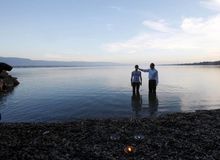
The Swiss Federal Court rejected the appeal of the evangelical church of Cologny. “It confirms the decline in religious freedom in Geneva”, evangelicals say.

In Estonia, the Czech Republic, Denmark, Switzerland, the United Kingdom, Sweden, Latvia and Finland, just 10% or fewer adults say religion is a priority for them.

Christians discuss the recent unrest on an online roundtable. Over 400 people were arrested across the UK due to the disorders.

Kids Games. a “week of sport, fun and creativity, along with biblical discovery”, celebrates its 20th anniversary.

Las opiniones vertidas por nuestros colaboradores se realizan a nivel personal, pudiendo coincidir o no con la postura de la dirección de Protestante Digital.